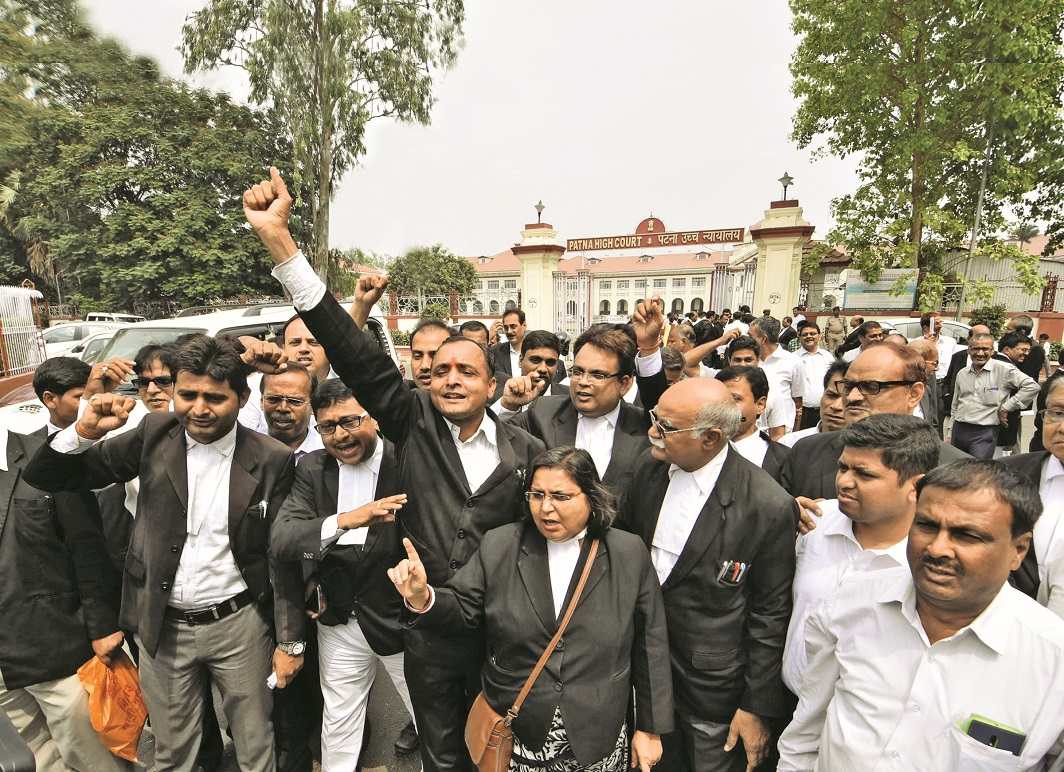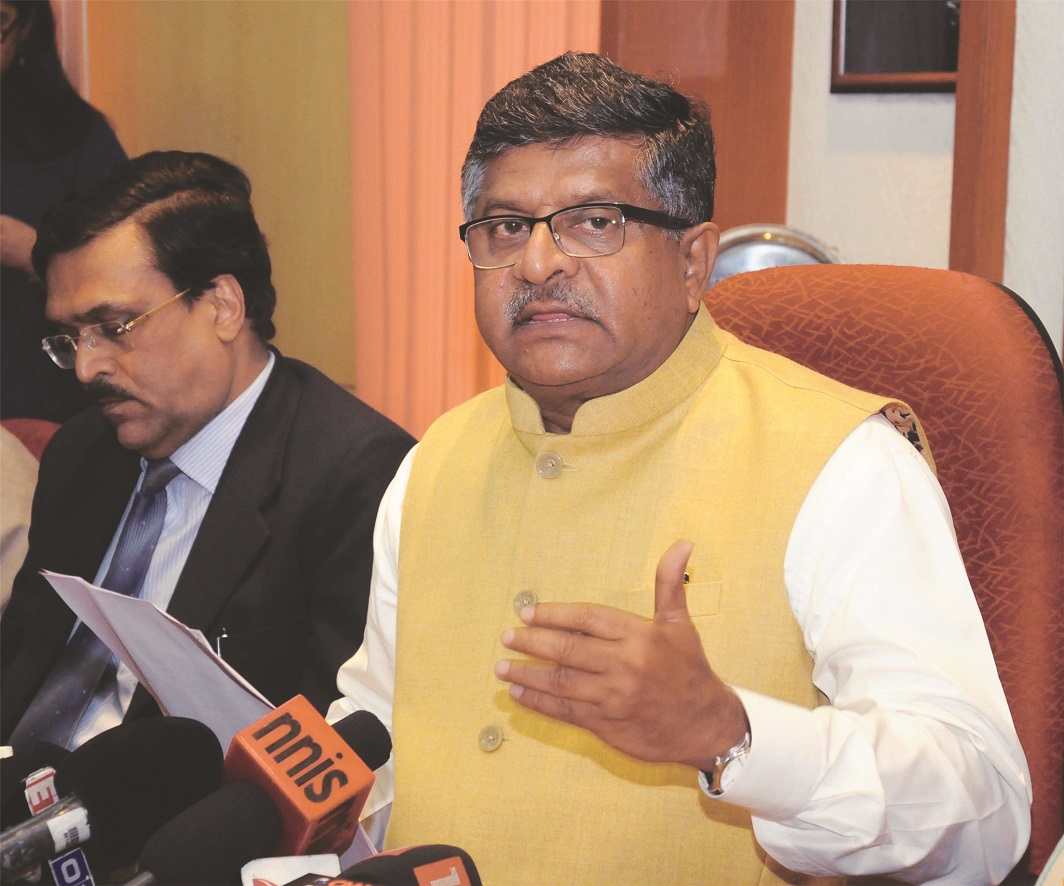
The Bar Council of India’s agitation against the Law Commission’s draft bill to amend this Act has been withdrawn following government assurances but concerns remain
~By Venkatasubramanian
If the resolutions passed at the joint meeting of the Bar Council of India (BCI) and the representatives of High Court Bar Associations on April 15 in Delhi were any indication, a long drawn-out battle appeared to be imminent between the lawyers and the Law Commission. The BCI and the Bar Associations alleged that the Law Commission, by proposing amendments to the Advocates Act, was trying to snatch the autonomy and independence of the Indian Bar.
Even as lawyers across the country protested by abstaining from work for half a day on April 21, a meeting held between BCI’s representatives and Union Law Minister Ravi Shankar Prasad on the same day resulted in the government’s assurance that it would not amend the Act without consulting the lawyers.
REGULATING LAWYERS
Although the BCI has subsequently withdrawn its agitations over the Law Commission’s proposed amendments, the government is far from allaying its concerns over them. First, the Law Commission’s proposed composition of Bar Councils has stirred a hornet’s nest.
The BCI and Bar Associations have taken umbrage at the LCI’s recommendation that Bar Councils, composed of people nominated from other walks of life apart from the legal profession, would conduct proceedings relating to any complaint of misconduct against the advocates who face disciplinary proceedings. That such councils comprising of non-lawyers would regulate the legal profession and education is another source of concern to the lawyers.
The BCI’s resolution announced rallies and jail bharo campaigns across the country. Fortunately, better sense prevailed after its meeting with Law Minister Ravi Shankar Prasad, when it withdrew its aggressive postures.
The BCI has described the LCI’s recommendation that lawyers would have to pay compensation to their clients in case they go on strikes, abstain or fail to appear in cases even for genuine reasons as draconian. The LCI has proposed that on receipt of a complaint or otherwise, if a State Bar Council has reason to believe that any of its advocates has been guilty of professional or other misconduct, it shall refer the case for disposal to its disciplinary committee. While it has fixed the limit of the fine to be paid by errant lawyers as Rs 3 lakh, it has also recommended a fair and reasonable compensation, subject to the maximum of Rs 5 lakh, be paid to the person aggrieved by the misconduct of the concerned advocate. If the complaint is found to be vexatious, the BCI has recommended imposition of costs up to Rs 2 lakh on such a complainant.

Another provision, considered draconian, is that during the pendency of a disciplinary proceeding after a complaint of grave misconduct, the BCI and State Bar Councils may suspend the advocate from practice, but with the prior recommendation of the concerned Disciplinary Committee.
PROHIBIT BOYCOTTS
A crucial amendment is the one seeking to prohibit boycotts or absenteeism from work, for which there is no provision in the law at present. Violation of this clause shall be treated as misconduct and shall be liable for disciplinary action contemplated under the Act and Rules, says another proposed clause in the Act.
The BCI and State Bar Associations wanted the resignation of the chairman of the Law Commission, Justice BS Chauhan, even though such a demand, simply on the ground that they disagree with the LCI’s recommendations, is uncalled for.
Burning copies of the LCI’s recommendations and the proposed Bill to amend the Advocates Act on April 21 was perhaps an extreme form of manifestation by the lawyers. But whether such extreme steps would help to strengthen or weaken the BCI’s institutional image is debatable.
PRIMARY ROLE
The BCI’s resolution also announced massive rallies and jail bharo campaigns across the country, making one wonder whether it has forgotten its primary role as a regulatory body and assumed the role of a trade union. Fortunately, better sense prevailed on the body, after its meeting with the law minister, when it withdrew its aggressive postures.

The Bill proposed by the LCI is not a perfect remedy for the ills plaguing the legal profession. Concerns have been expressed, for instance, that its definition of “misconduct” of lawyers in the proposed Bill is and vague, and can potentially be misused by clients in order to claim compensation.
The LCI’s mandate is to propose a legislation to improve the regulation of the profession, as it has been assigned the task by the Supreme Court in the Mahipal Singh Rana’s case last year.
In this case, the Supreme Court found that the present system of elected state Bar Councils and the BCI had clearly failed. Therefore, professional bodies like the Bar Councils must engage with the government in critiquing the latest proposals to reform the legal profession rather than throw the baby with the bathwater.

